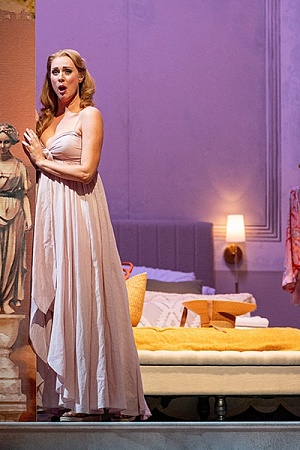Don Carlos (Opera Australia)
Passion and politics often go hand in hand – and never more so than in Don Carlos, arguably Verdi’s greatest opera. Based on the historically questionable play by Friedrich von Schiller, it is certainly the composer’s grandest and most ambitious work and the most demanding of his career. Because of church and state interventions as well as its original length, many revisions were required after its première in 1867.
Opera Australia’s restudied version of Elijah Moshinsky’s 1999 production has retained the elegant sets of Paul Brown, which convey the foreboding magnificence of the sixteenth-century Spanish court. New to the production are the Velázquez-inspired costumes, which add a grandeur and authenticity befiting the scale of the opera. The lighting by Nigel Levings was atmospheric and evocative.
Continue reading for only $10 per month. Subscribe and gain full access to Australian Book Review. Already a subscriber? Sign in. If you need assistance, feel free to contact us.










Leave a comment
If you are an ABR subscriber, you will need to sign in to post a comment.
If you have forgotten your sign in details, or if you receive an error message when trying to submit your comment, please email your comment (and the name of the article to which it relates) to ABR Comments. We will review your comment and, subject to approval, we will post it under your name.
Please note that all comments must be approved by ABR and comply with our Terms & Conditions.